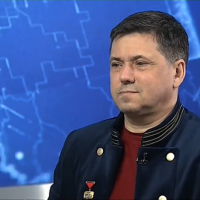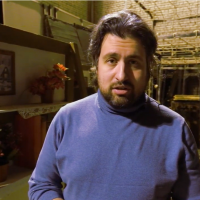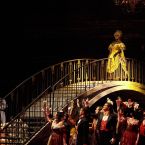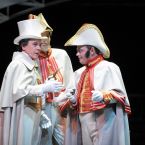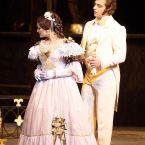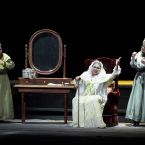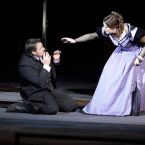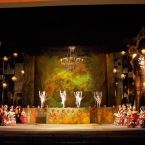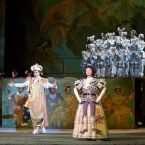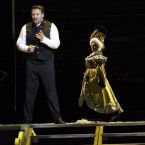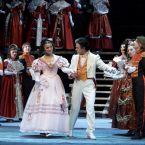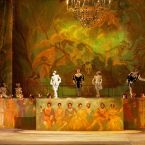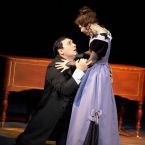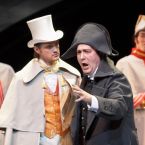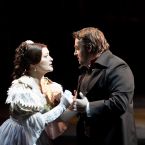All of us look in Napoleony;
Biped creatures millions
For us tool one.
To us the feeling is wild and ridiculous.
A.S. Pushkin
The ingenious creation of Tchaikovsky drew attention of such directors, as L. Mikhaylov, Yu. Lyubimov, L. Dodin, V. Fokin, Graham Vick, F. Dzambello, Yu. Alexandrov more than once. Perhaps, V. Meyerhold's version appeared one of the most interesting and, at the same time, the most disputable. The director innovator preferred to exclude a passionate love subject from a plot, having left to Herman only passion and thirst of career, having approached a plot to the literary original — it became an echo of idea of fight for "pushkinization" of "Queen of spades". But, as it was truly noticed, her creator inspired by Pushkin's story which took from it by means of the librettist everything took care of "pushkinization" of the opera that it was required to it. Geniuses perfectly know, how many they should take from the literary primary source, and taken becomes their integral art property". (I. Glikman)
It would seem, what the general between the Pushkin story about players and those questions which excited Tchaikovsky's contemporaries? What the enrichment, general between the obsession pursuing Herman (placed by Tchaikovsky during a Pushkin era), and tragic destiny of the Russian youth of the 80-90th years? Comparison it during that time, really, seemed incommensurable, and Pushkin's story was considered by many as skillfully told joke about mysterious cards. So, perhaps, the composer until behind avaricious drawing of external events I didn't feel the analogy to the time which struck it — in unsolvability of public contradictions and in spontaneously arising feeling of a protest treated it.
The author of the new scenic version of "Queen of spades" Sergey Bobrov is convinced: the plot of the great Russian opera is actual and today! The same vain fight of the strong, vigorous, gifted person against destruction of the personality to which doom him both society, and circumstances of life. The same concealed offenses of youth and hatred to the caste rejecting it. The same passionate desire to break class "barriers", to rotate Fortuna's wheel and to rush into a desired circle of "gilded youth" at any cost — at the price of loss of love, happiness, honor and the life! A keynote passes an image of "gray overcoats" through all performance — that deprived of individual traits, uniform "the gray weight", to escape from which — a main goal of the hero. Arise in image of Herman and Napoleonic hints — "all of us look in Napoleony".
Tchaikovsky has Pushkin Herman — the player and the careerist — is allocated with love passion to Lisa, but such transformation of an image was that indispensable condition without which observance the opera wouldn't be created. In the director's version of Sergey Bobrov both vectors in development of the identity of Herman are kept, and the tragic element of its figure amplifies impossibility of a choice between love and thirst of enrichment, poignancy of internal fight: Yes, perhaps, and the hero couldn't explain distinctly to himself, what feeling attracts him to Lisa — true, i.e. disinterested (!), love or thirst of a revenge. Herman's love "according to Tchaikovsky" — is love torture, love madness.
Image of Lisa — only where Tchaikovsky far departed from the Pushkin story: his heroine has nothing in common with the pretty, pensive and reasonable pupil of the old countess — the girl allocated with imagination, but who long ago learned to suppress any manifestation of own will. Lisa of Tchaikovsky is allocated with courage, thirst to leave living conditions, habitual, but close for it. As well as other heroines of Tchaikovsky, it finds this completeness of life and love and gives the feelings to the person bright, unusual, attracted with its strength of mind and passion.
And opera final other, than final of the Pushkin story: the Pushkin Herman locked in a madhouse senselessly mutters: "Three, seven, ace!". Tchaikovsky couldn't send the hero to the power of such end, he preferred physical destruction. And only the death releases a pure feeling in Herman's soul...



